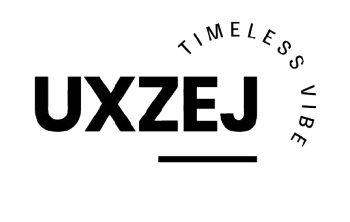The delivery chain has grown in complexity, particularly in the globalized world we live in today—with products that must travel across borders multiple times, handled by different intermediaries, and touched by countless hands before reaching the final consumer. As complexity increases, so do the challenges related to transparency, trust, and traceability. Blockchain technology has emerged as a revolutionary tool with significant potential to transform supply chain management: a decentralized and immutable digital ledger. Blockchain enhances various aspects of supply chains by reinforcing transparency and traceability, thereby increasing trust among parties involved.
This article explores how blockchain is revolutionizing supply chain transparency, including its key advantages, real-world applications, and challenges for companies in implementing the technology. We will delve into the underlying technology, its effectiveness, and its growing importance for industries aiming to build more efficient, transparent, and fair supply chains.
Understanding Blockchain Technology
What is Blockchain?
Blockchain is a distributed ledger technology where data is recorded in a shared database maintained by participating parties, without the need for a central authority. Transactions are grouped into blocks and then linked, or “chained,” in chronological order. Once data is added to the blockchain, it becomes immutable and visible to all participants. This transparency and immutability create a secure and trusted environment for data sharing.
Unlike traditional centralized systems, where information is controlled by a single entity, blockchain is decentralized. This decentralization reduces the risk of data manipulation, fraud, and inefficiencies.
Characteristics of Blockchain
Decentralization: Eliminates a single point of failure, as the network continues to function even if one part fails.
Immutability: Once data is recorded, it cannot be altered, making the record tamper-proof.
Transparency: All participants have access to the same information, ensuring openness and accountability.
Security: Cryptographic algorithms secure data on the blockchain, protecting it from unauthorized access and tampering.
Smart Contracts: Self-executing contracts that automatically enforce the terms of an agreement without human intervention.
Blockchain and Supply Chain: A Match Made in Heaven
Supply chains inherently involve multiple stakeholders, including suppliers, manufacturers, distributors, retailers, and customers. Each stage often requires documentation, verification, and approval, leading to inefficiencies, fraud, and distrust. Blockchain’s decentralized and transparent nature addresses these challenges effectively.
Transparency in Supply Chains Matters
The Role of Transparency
Transparency in supply chains refers to the ability of all stakeholders, including consumers, to access detailed, real-time information about the goods they purchase, including their origin and production processes. A fully transparent supply chain openly shares information about sourcing, manufacturing, shipping, and warehousing, making it easily accessible to everyone.
This level of transparency has become increasingly important to consumers and organizations alike. Consumers demand more information about the products they buy, particularly regarding ethical sourcing, sustainability, and fair labor practices. Organizations, in turn, face pressure to ensure their supply chains comply with regulations, are free of fraud, and operate efficiently.
Challenges in Achieving Transparency
Despite the growing demand for transparency, many supply chains remain opaque due to the complexity of global trade and interference from multiple intermediaries. Key challenges include:
Data Silo: Data is often stored in separate databases, making it inaccessible to other stakeholders.
Lack of Trust: Businesses may be reluctant to share information openly due to distrust among parties.
Manual Processes: Many processes are still manual, leading to delays and inefficiencies.
Fraud and Counterfeiting: Transparency is needed to combat fraud and prevent the sale of counterfeit goods.
Sustainability and Ethical Concerns: Verifying the ethical and environmental sourcing of products remains challenging.
The Impact of Lack of Transparency
Supply chain opacity can lead to several negative outcomes, including:
Reputational Damages: Lack of supply chain disclosure can erode consumer trust and damage a company’s reputation.
Lack of Compliance with Regulations: Failure to adhere to transparency-related regulations can result in fines or legal issues.
Increased Expenses: Higher operational costs due to audits, inspections, and dispute resolutions.
How Blockchain Improves Supply Chain Transparency: Traceability and Accountability
One of blockchain’s significant benefits in supply chain management is end-to-end traceability. Every transaction or event within the supply chain can be recorded on the blockchain, allowing companies and consumers to trace the origin and movement of a product.
For example, a consumer buying jewelry with gold can trace its origin to ensure it comes from ethical sources. Similarly, food producers can track ingredient origins to ensure quality and safety.
Blockchain also enhances accountability by creating an indelible record of each transaction. If an issue arises in the supply chain, businesses can easily identify the source of the problem and take corrective measures.
Fraud and Counterfeiting: Complete Elimination
Fraud and counterfeiting are significant concerns for industries dealing in luxury items, pharmaceuticals, and food. Blockchain’s immutable nature can combat these issues effectively.
For instance, pharmaceutical companies can use blockchain to ensure drugs are not counterfeit by recording production and distribution details. Retailers of luxury goods can provide customers with digital certificates of authenticity stored on the blockchain.
Building Consumer Confidence
Consumers today are more informed and cautious, seeking assurance about the origin, production, and ethical standards of products. Blockchain technology allows businesses to provide this information transparently and verifiably.
For example, a fashion brand can use blockchain to showcase the entire lifecycle of a garment, from the cotton farm to the store, building consumer trust and gaining a competitive edge in a market that values transparency and sustainability.
Improved Stakeholder Collaboration
Blockchain facilitates collaboration among supply chain stakeholders, such as suppliers, manufacturers, logistics providers, and retailers. A single, distributed ledger acts as a common reference point, reducing errors and discrepancies in processes like invoicing and payment.
Smart contracts running on blockchain can automate many supply chain aspects. For example, if goods are delivered and verified on the blockchain, smart contracts can trigger automatic payments to suppliers.
Sector-Specific Applications
Food and Agriculture
The food and agriculture industry benefits significantly from blockchain technology. Companies like IBM and Walmart use blockchain to trace food products from farm to table. Walmart’s Food Traceability Initiative tracks leafy greens to quickly identify sources of contamination, improving food safety.
In the seafood sector, blockchain ensures that fish are sourced sustainably and without illegal fishing practices.
Pharmaceuticals
Blockchain addresses major challenges in the pharmaceutical industry, such as counterfeiting and regulatory compliance. By tracking drugs throughout their lifecycle, blockchain ensures authenticity and adherence to regulations.
Fashion and Luxury Goods
Counterfeiting is a major issue in fashion and luxury goods. Blockchain technology enables the creation of digital certificates for high-end products, allowing consumers to verify authenticity. It also supports sustainability efforts by tracing the origin of materials like cotton and wool.
Automotive Industry
In the automotive sector, blockchain tracks the source of raw materials and records a vehicle’s manufacturing and maintenance history. This information is valuable for consumers and insurers, providing a verifiable record of a vehicle’s condition and history.
Logistics and Shipping
Blockchain improves efficiency and transparency in logistics and shipping. For example, Maersk has partnered with IBM to create Trade Lens, a blockchain platform that tracks shipping containers in real-time. This reduces delays, enhances security, and increases transparency.
Challenges and Considerations for Implementing Blockchain in Supply Chains
While blockchain offers numerous benefits for supply chain transparency, several challenges must be addressed, including:
Integration with Existing Systems: Merging blockchain with existing ERP or logistics systems can be complex and costly.
Scalability: Public blockchains may struggle with scalability as more participants and transactions are added.
Regulatory Compliance: Companies must ensure blockchain implementation complies with varying regulations, particularly in industries like pharmaceuticals and food.
Cost: The initial cost of blockchain implementation, including infrastructure and training, can be high, especially for SMEs.
Supply Chain Transparency: Blockchain’s Future
As blockchain technology continues to evolve, its impact on supply chain transparency will grow. Key trends shaping the future include:
Integration with IoT and AI: Combining blockchain with IoT and AI will enhance transparency further. IoT devices can provide real-time data on products, which is recorded on blockchains and analyzed by AI for better decision-making.
Increased Adoption by Governments and Regulators: Governments and regulators are recognizing blockchain’s potential to improve transparency. Expect more regulations requiring traceability and the establishment of shared blockchain networks among stakeholders.
In conclusion, blockchain enhances supply chain transparency by offering greater traceability, reducing fraud, and building trust among stakeholders. While challenges exist, the benefits of improved efficiency, security, and accountability make blockchain a valuable tool for any business seeking to optimize its supply chain.
With increasing consumer demand for transparency and ethical sourcing, blockchain will continue to support businesses in achieving these goals and staying competitive in a rapidly changing market.

